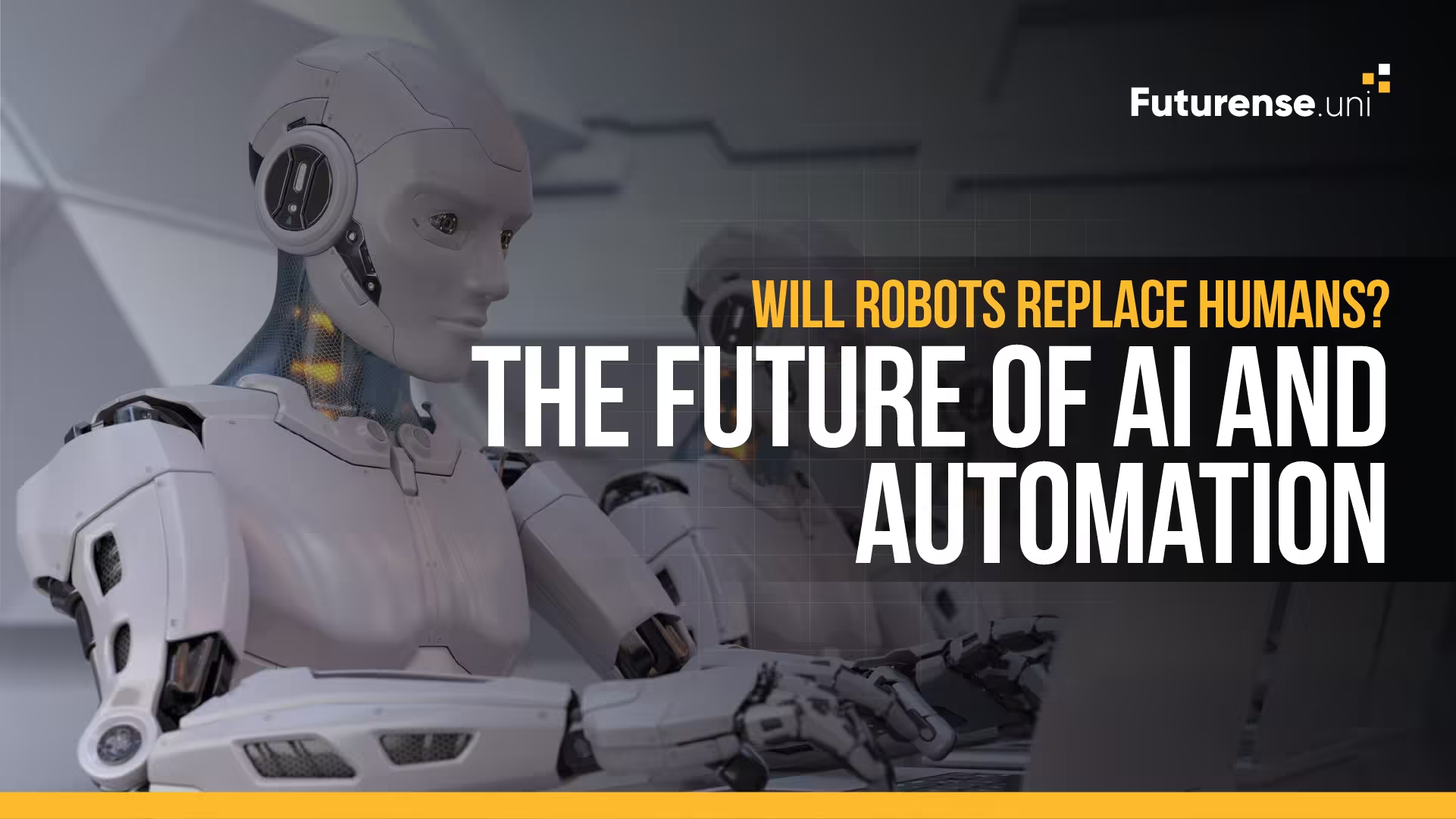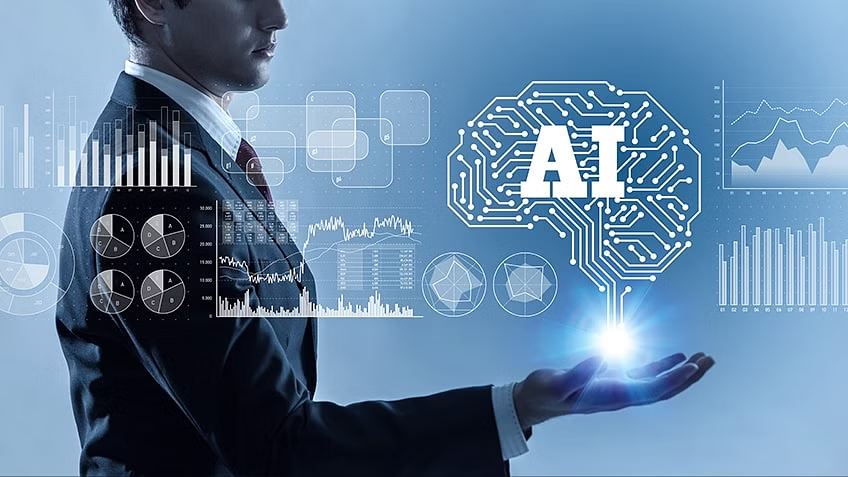The Future of AI and Automation is reshaping industries by streamlining processes, boosting efficiency, and minimizing human error. From manufacturing and healthcare to finance and customer service, organizations are increasingly adopting AI-powered solutions to drive productivity and innovation. Yet, this rapid transformation also raises concerns about job displacement, as intelligent machines take over repetitive tasks. While certain traditional roles may decline, new opportunities are emerging in areas such as AI development, cybersecurity, and data analysis. The real challenge—and opportunity—lies in adapting to this shift through continuous learning, upskilling, and embracing technological change. Rather than replacing human expertise, AI is set to complement it, creating a more dynamic and innovative workforce.
Will the Future of AI and Automation Replace Humans - or Redefine Work?
The question of whether AI and automation will replace humans or collaborate with them is a topic of ongoing debate. While AI can automate repetitive tasks, making industries more efficient, it lacks the emotional intelligence, creativity, and complex problem-solving abilities that humans bring to the table. Jobs that require empathy, ethical decision-making, and human touch, such as those in healthcare and education, are unlikely to be replaced by machines. Instead, AI is seen as a tool to complement human work, allowing people to focus on more strategic and interpersonal tasks. Individuals with specialized knowledge, like those pursuing a BSc in Data Science and Analytics, will be crucial in leveraging AI tools for better decision-making. The future of work will rely on humans and AI collaborating, with humans driving innovation, decision-making, and creativity. To thrive, individuals will need to cultivate skills in areas like critical thinking, emotional intelligence, and adaptability—skills that AI cannot replicate.
Key Impacts of AI and Automation on Jobs and Society
Job Transformation vs. Job Loss
AI is transforming the job market by automating repetitive tasks and creating new roles in fields like data science, machine learning, and AI development. While certain jobs may be lost, particularly in routine tasks, new career opportunities are emerging that require specialized skills. The challenge is ensuring workers are equipped to adapt to these shifts and find new roles that leverage both AI and human expertise.
Industries Most Affected by AI Manufacturing, healthcare, and finance are among the industries most impacted by AI and automation. In manufacturing, AI improves efficiency and reduces human error. In healthcare, AI assists in diagnostics and treatment planning. In finance, automation and AI streamline transactions, fraud detection, and investment strategies, transforming workflows and requiring new expertise to manage these technologies effectively.
Also Read: What is the Difference Between BE and BTech?
The Role of Human Creativity and Emotional Intelligence
AI excels at tasks requiring logic and repetition, but it lacks human creativity and emotional intelligence—skills crucial for innovation, leadership, and customer relations. Jobs in areas such as art, therapy, and management depend on human intuition, empathy, and originality. These uniquely human attributes will remain essential as AI technology becomes more integrated into everyday work processes.
AI and the Future of Work: Hybrid Workforce
Rather than replacing humans, AI is expected to complement them in a hybrid workforce model. AI can take over routine tasks, allowing humans to focus on strategic, creative, and complex responsibilities. This collaboration enhances productivity, innovation, and decision-making, allowing employees to add value in ways AI cannot, ensuring that both humans and machines can coexist in the workplace.
Reskilling and Upskilling: Preparing for AI Integration
As AI continues to reshape industries, reskilling and upskilling the workforce become essential. Professionals will need to adapt to new tools, technologies, and methods by acquiring skills in data science, machine learning, and AI-driven workflows. Companies should invest in training programs that enable employees to thrive in a tech-driven environment, ensuring that workers can transition into roles that require new technical and soft skills.
Economic and Social Implications of AI Adoption
AI adoption has significant economic and social implications. On one hand, it can drive economic growth by boosting productivity and creating new markets. On the other hand, it can exacerbate income inequality, as workers without the necessary skills may face job displacement. Policymakers must balance the benefits of AI with strategies for inclusive growth and social welfare to ensure AI's positive impact on society.
Also Read: MAANG Companies: Who are These Tech Giants?
How Businesses Can Leverage AI Without Replacing Employees
Businesses can leverage AI to enhance efficiency, improve customer service, and streamline operations without replacing employees. By automating repetitive tasks, employees can focus on higher-value work, such as strategy and innovation. Companies should prioritize creating an AI-augmented workforce where employees collaborate with AI tools, driving growth and innovation while retaining the human touch in essential business functions.
Ethical Concerns and AI Governance
The rise of AI brings with it ethical concerns, including data privacy, algorithmic bias, and accountability in decision-making. As AI systems make more decisions, it is crucial to implement governance frameworks that ensure transparency, fairness, and accountability. Ethical considerations must be a central part of AI development and deployment to prevent unintended consequences and ensure that AI serves the public good.
Future Innovations: What’s Next in AI and Automation?
The future of AI and automation is filled with exciting possibilities, including advancements in natural language processing, autonomous vehicles, and personalized medicine. AI's ability to process vast amounts of data will lead to breakthroughs in healthcare, education, and scientific research. Innovations will continue to reshape industries and create new business models, offering opportunities for those prepared to adapt to these changes.
Will AI Ever Develop Consciousness?
The question of whether AI will ever develop consciousness remains speculative. While AI systems can simulate intelligent behavior and decision-making, they lack self-awareness, emotions, and subjective experiences that define consciousness. Experts disagree on whether true consciousness in AI is achievable, but current technology is far from creating machines that can think or feel like humans. The future of AI will likely remain focused on enhancing machine learning capabilities rather than developing consciousness.
Also Read: Cybersecurity: Protecting Your Digital World
Final Thoughts
The Future of AI and Automation is not about machines replacing humans entirely, but about reshaping the way we work and live. While automation may reduce the need for repetitive, manual tasks, it simultaneously opens the door to new roles that require creativity, critical thinking, and technological expertise. Businesses and individuals who embrace this transformation through innovation and continuous learning will thrive in the evolving digital landscape. Ultimately, AI is not a replacement for human potential—it is a powerful tool to enhance it, paving the way for smarter industries and a more dynamic future.
FAQ Section
Will Ai Completely Replace Human Jobs?
AI is unlikely to completely replace human jobs. While automation can handle repetitive and time-consuming tasks, there are many aspects of work that require human creativity, emotional intelligence, and complex problem-solving. AI is more likely to augment human abilities, enabling professionals to focus on higher-level tasks and enhancing productivity. Careers in areas such as AI development, data science, and analytics are expected to grow as AI continues to evolve.
What Jobs Are At The Highest Risk Due To Automation?
Jobs that involve routine and repetitive tasks are at the highest risk of automation, including manufacturing, data entry, and basic customer service roles. Professions such as drivers and clerks may also be affected. However, roles that require human creativity, strategy, or emotional intelligence are less likely to be automated. For those pursuing a BSc in Data Science and Analytics, AI is expected to create more opportunities in tech-driven fields.
How Can Professionals Adapt To An Ai-Driven World?
Professionals can adapt by upskilling and reskilling in areas that complement AI, such as data analysis, machine learning, and problem-solving. Courses like a BSc in Data Science and Artificial Intelligence can provide individuals with the technical skills needed to thrive in an AI-powered workforce. Additionally, cultivating soft skills, such as creativity and emotional intelligence, will remain crucial for human roles in an AI-driven world.
What Are The Ethical Concerns Related To Ai And Automation?
Ethical concerns surrounding AI include issues like algorithmic bias, data privacy, and accountability in decision-making. AI systems can inadvertently perpetuate discrimination if trained on biased data, leading to unfair outcomes. Ensuring transparency, fairness, and oversight in AI development and use is essential to prevent negative consequences and uphold ethical standards in areas such as healthcare and hiring.
Can Ai Replace Creative And Emotional Intelligence-Based Jobs?
AI is unlikely to replace jobs that require creativity or emotional intelligence. Professions such as art, counseling, and leadership rely on human traits that AI cannot replicate, such as empathy, intuition, and originality. AI can support these roles by enhancing productivity and providing tools to improve performance, but humans will continue to be vital in these fields.









.avif)